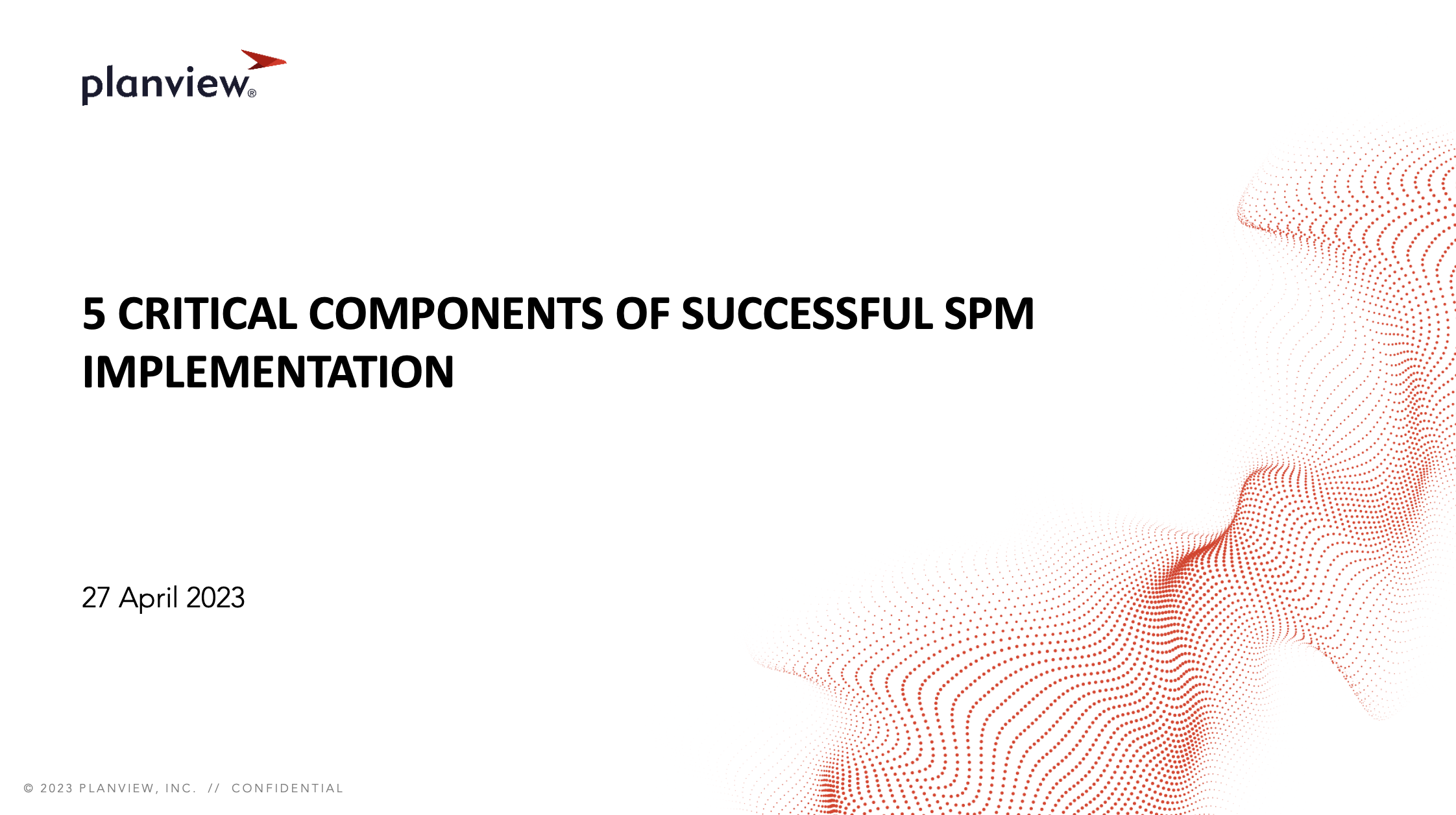Strategic Portfolio Management (SPM) enables enterprises to realize their strategic and transformational goals faster and more efficiently. But before your organization can achieve this level of success, you must first understand what SPM is and what separates it from Project Portfolio Management (PPM).
Both solutions are instrumental in ensuring the success of your company’s initiatives, but on different levels. Companies use PPM to manage their projects, helping teams plan and prioritize work to accelerate project and work delivery.
Companies use SPM to manage the enterprise portfolio as a whole, aligning and prioritizing different parts of the business to ensure organizational strategy stays linked to the work delivered.
PPM tends to focus on outputs, while SPM focuses on outcomes. The good news is that having a strong understanding of PPM gives you a foundation to start your SPM journey.
Your enterprise can use SPM to:
- Reduce the time it takes to turn ideas into business value
- Connect the work teams deliver and your company’s strategy
- Ensure your investments are aligned with your strategic goals
Watch on-demand as we explore five critical elements for successfully implementing SPM in your organization. We will break down the differences between SPM and PPM and show you how SPM reduces the time it takes to turn your big ideas into actual business value.
Strategic Portfolio Management (SPM) enables enterprises to realize their strategic and transformational goals faster and more efficiently. But before your organization can achieve this level of success, you must first understand what SPM is and what separates it from Project Portfolio Management (PPM).
Both solutions are instrumental in ensuring the success of your company’s initiatives, but on different levels. Companies use PPM to manage their projects, helping teams plan and prioritize work to accelerate project and work delivery.
Companies use SPM to manage the enterprise portfolio as a whole, aligning and prioritizing different parts of the business to ensure organizational strategy stays linked to the work delivered.
PPM tends to focus on outputs, while SPM focuses on outcomes. The good news is that having a strong understanding of PPM gives you a foundation to start your SPM journey.
Your enterprise can use SPM to:
- Reduce the time it takes to turn ideas into business value
- Connect the work teams deliver and your company’s strategy
- Ensure your investments are aligned with your strategic goals
Join us as we explore five critical elements for successfully implementing SPM in your organization. We will break down the differences between SPM and PPM and show you how SPM reduces the time it takes to turn your big ideas into actual business value.


